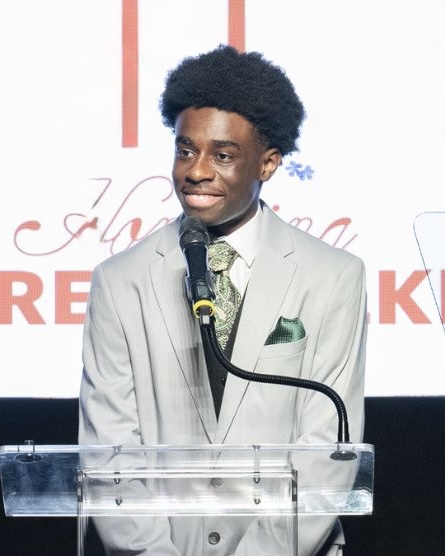Written by former GC New York Student Bismark Ghanney
When I think back on my Generation Citizen experience, what stands out most is how it made civic engagement feel real and personal. Before Generation Citizen, I understood the basics of government and community issues, but it felt like something I couldn’t interact with – something that was foreign to me, something that “adults” or politicians handled. Working on our career readiness project changed that for me. It was the first time I saw how a group of young people, when organized and focused, could identify an issue, research it, and push for solutions that actually mattered to our peers.
Our project focused on career readiness programs in high schools. At first, it felt overwhelming, but as we started to break it down, I realized this was about more than just adding a class or workshop; it was about opportunity. Too many students go through school without a clear sense of the options available to them, or without resources to explore careers beyond the traditional paths people expect the youth to go into. I saw that lack of preparation not only holds students back individually, but also limits what our communities can achieve as a whole.
Leading my small group was one of the most challenging and rewarding parts. I had to listen carefully, balance different opinions, and make sure everyone felt included in the process. It pushed me to grow as both a collaborator and a leader. When we presented our plan, it wasn’t just about convincing the adults in the room; it was about showing what youth could accomplish when given the chance to think critically and advocate for themselves. Winning the award for open-mindedness meant a lot to me because it captured what I had learned: civic engagement isn’t just about pushing your own ideas; it’s about being willing to adapt, listen, and find common ground.
Now that I’m in college, studying government and law, I can see how much that experience shaped me. It showed me that civic engagement isn’t foreign or impossible to interact with, it’s about communities using their voice to create change. Generation Citizen made me want to study how systems of power work, but also how everyday people can influence those systems.
Looking ahead, I see civic education as central to my goals. I want to be someone who not only understands the structures of government, but also helps bridge the gap between institutions and communities. The lessons from Generation Citizen — listening, adapting, and staying persistent — continue to guide me. Whether it’s through policy, law, or direct community work, I carry with me the belief that real change doesn’t start at the top. It starts when people, even students, no matter their background or age, recognize their power and decide to use it.
